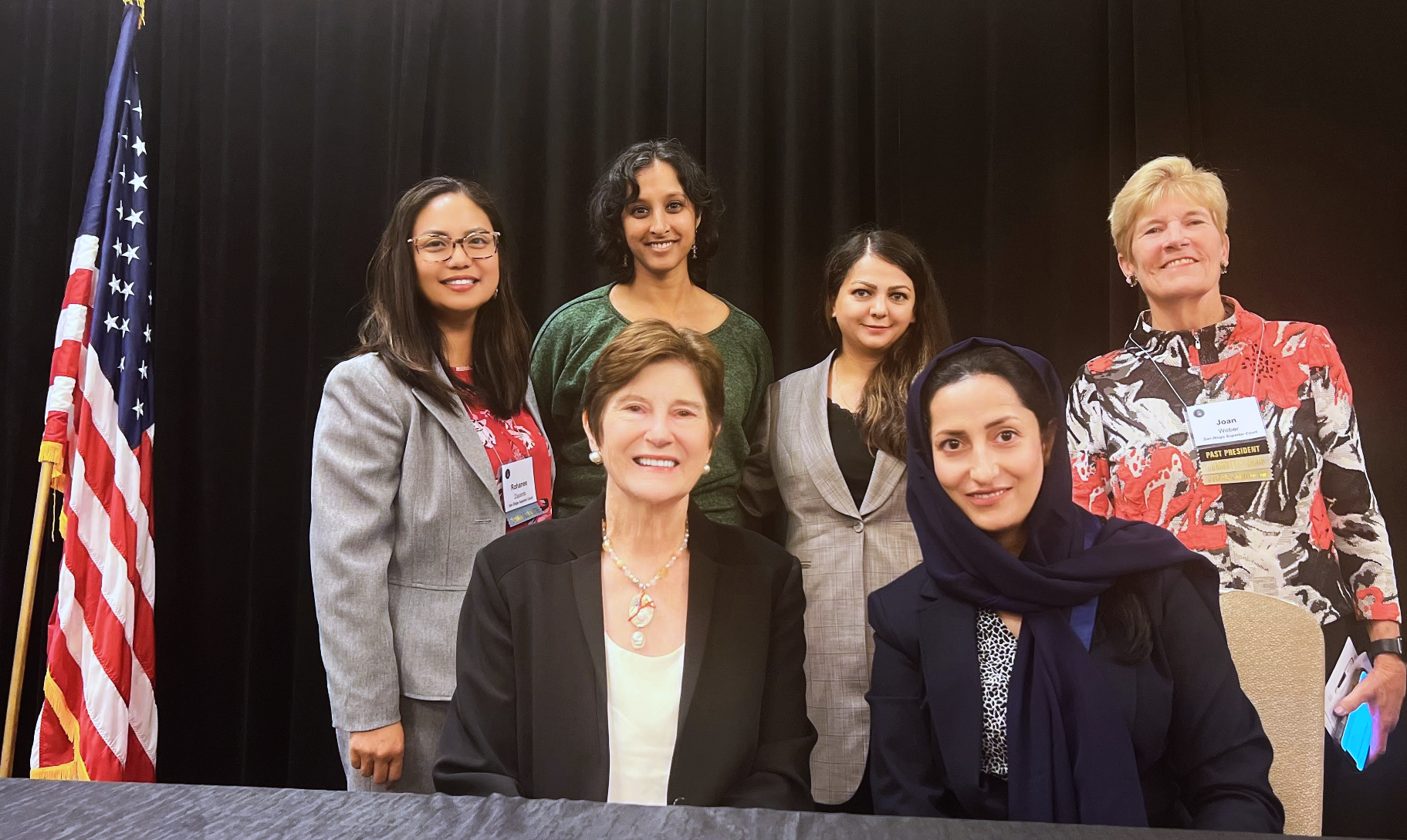How Judicial Branch Attorneys Contributed to the Community in 2023
As the Taliban closed in, Masooda Qazi fled Afghanistan with her most important possession taped to her chest—her law degree from Kabul University.
Qazi had been ranked first in her law school class before joining international organizations and the U.S. Embassy. Over a decade, she drafted laws criminalizing violence against women and led anti-corruption efforts.
When she finally arrived in San Diego after a difficult journey, Qazi found support from judicial officers and attorneys at the Fourth District Court of Appeal, Division One and San Diego Superior Court.
Today, she is a paralegal in the San Diego County Public Defender’s office. Qazi and her husband, also a refugee lawyer now at a firm, hope to take the California Bar Exam in the coming years.
“It’s a rag tag bunch of us, and we’re learning as we go,” said attorney Mytili Bala, who spearheaded the South Asian Bar Association’s Afghan Outreach Project. “Each placement changes a life and in turn helps people rebuild their communities.”
She added: “We want to not only mentor refugee-lawyers, but also learn from them about protecting the rule of law.”
In San Francisco, 50 attorneys who work for the California Supreme Court and First District Court of Appeal have also logged hundreds of pro bono hours during 2023.
“I’m extremely proud of our judicial branch attorneys for taking on the commitment to pro bono legal work,” said Chief Justice Patricia Guerrero. “Attorneys who volunteer their free time are crucial to helping California close the justice gap for people who need but cannot afford legal help.”
Erin Rosenberg, a staff attorney for Chief Justice Guerrero, launched a listserve in 2019 to provide pro bono opportunities that meet the guidelines for judicial attorneys. Those who work for the branch are barred from taking cases that might come before the court, for example.
“The immediate impact of this work is a nice change of pace from the long-term nature of the appellate work we do,” Rosenberg said. “As public servants, it’s important to share our expertise and support our community where we can.”
Among the other ways judicial branch attorneys made a difference in 2023:
- Constitution Month: Attorneys visited classrooms in Santa Clara and San Diego in September for Constitution Month to help teach students about the Constitution, judicial branch, and role of the courts.
Dylan Calsyn, a staff attorney for Chief Justice Guerrero, said his experience visiting a third-grade classroom in San Diego was especially meaningful to him after the recent death of his mother, a longtime teacher and principal. “I felt a real connection to this classroom and the teacher, who is working to engage the students and make them think about the world and how they want to run it,” Calsyn said. “Because they will be in charge one day.”
- Judging Moot Court: Led by Tami Fisher, the Supreme Court’s director of Capital Central Staff, Supreme Court attorneys served as justices for a few hours, sitting as mock judges for students during several sessions of UC Law San Francisco’s Moot Court competition. “I am heartened so many of my colleagues lend their time and expertise to assisting the next generation of law students,” said Fisher, who teaches moot court and appellate advocacy courses.
In 2024, a group of Supreme Court attorneys will begin a volunteer effort with the Unconditional Legal Clinic at GLIDE in San Francisco, which provides free legal advice to anyone in need. Historically, half of the clinic’s clients are homeless, and 75 percent are from minority communities.


